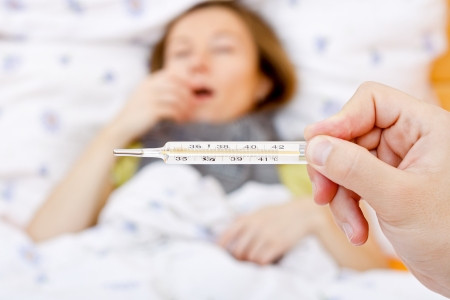The iSavta Team | 13.11.2019

As a Caregiver, we are exposed to certain individuals with different kind of diseases. Some of these are infectious that could potentially harm us as well. It is important to know the possible signs and symptoms and some important habits that we need to practice in order to prevent the spread of these diseases.
SOME INFECTIOUS DISEASES:
| DISEASE | POSSIBLE SIGNS & SYMPTOMS | HOW IT MAY BE TRANSMITTED |
INFECTIOUS PERIOD |
| Gastro-enteritis | Appetite loss, nausea, vomiting, diarrhea, abdominal cramps. | Contaminated food or water supplies |
Up to two days after diarrhea stops. |
| Glandular Fever | Fever, headache, swollen glands in neck, armpits and groin, severe sore throat, fatigue. | Contact with Saliva |
Variable - maybe weeks. |
| Hepatitis A, B, C, D and E | Flu-like illnes, sometimes followed by jaundice. Some people have no symptoms. | A, E: Infected food or water; B, C, D: Sexually transmitted; contaminated blood; shared needles | A, E: one week after jaundice. B,C,D: varies; blood can be infectious for life. |
| Herpes simplex (cold sores and genital herpes) | Small, fluid-filled, irritating blisters, slight temperature. | Contact with lesions. | Until blisters crust over. |
| Herpes Zoster (chickenpox and shingles) | Chickenpox: slight fever, groups of itchy, dark red spots that become blisters. Shingles: localised, painful blistering rash. | Airborne; contact with rash. | Until all blisters crust over. |
| HIV/AIDS | Maybe symptomless for years; breathlessness, fever, weight loss, diarrhea, swollen glands and fatigue may eventually occur. | Sexually transmitted; contaminated blood; shared needles; mother to child. | For life. |
| Influenza, common cold | Fever, cough, runny nose, headache, sore throat, chills, aches, pains. | Airborne | First few days. |
| Meningitis | Fever, headache, drowsiness, confusion, rash, reaction to light. | Various ,ethods, usually airborne. | A week before and ten days after fever. |
| Tuberculosis | Fever, cough, swollen and painful glands, stiff neck, weight loss. | Airborne | While phlegm is infected. |
PREVENTING INFECTION:
The body's immune system cannot fully protect against infection. It is essential , therefore, for your own health and that of your patient, to take steps to eliminate the germs that cause infection from your home environment. The risks can be minimised if you maintain a good level of cleanliness and take proper precautions when dealing with body waste.
Send More. Pay Less. Send Through Rewire Now!
The Body's Natural Defences:
The immune system is the body's main defence against infection. White blood cells circulate around the body and destroy harmful bacteria. People with leukemia, for example, who have a low number of these cells, will be more prone to infection.
Personal Hygiene:
Maintain a high standard of cleanliness, and minimise the risk of infection by good hand care. This includes washing your hands thoroughly, keeping skin on the hands intact and wearing disposable gloves. Use hand cream to avoid peeling and cracking of the skin.
1. Washing your hand thoroughly. Wash your hands before and after preparing food, after using the toilet or before and after giving care, even if gloves are worn. Scrub dirty nails as part of your handwashing routine.
2. Wearing and Removing Gloves. Gloves should be worn whenever a procedure involves contact with body fluids, and when cream or lotions are being applied. To prevent any substance coming into contact with your skin, always remove gloves. Disposable latex or vinyl gloves are availbel from most pharmacies. The thinner, polythene varieties should not be used as they do not provide adequate protection.
3. Cleaning Equipment. Some of the items used when caring may be disposable, but others will require thorough cleaning.
- Toliet aids. Clean bedpans, urinals and commode pans with hot, soapy water.
- Thermometers. Before use, rinse the thermometer in cold water and dry it with a paper towel. After use, wipe it with a damp cloth or cotton wool.
- Washing Accessories. Wash flannels and towels regularly. Irt is advisable to use separate towels and flannels on the face and body.
- Surfaces. Clean surfaces such as table-tops and bed-trays with a detergent, and dry thoroughly with a clean cloth.
Containing Your Own Germs:
It is particularly important to take steps to ensure that you do not spread your own germs to your patient.
- Illness. If you are ill, it will not be beneficial to your or your patient if you continue caring. Inform a care professional so that alternative arrangements can be made.
- Coughing or Sneezing. Use a tissue or handkerchief and avoid coughing or sneezing in the direction of your patient.
- Skin Infections. If you have cuts, abrasions or a skin disorder, you must ensure that the entire area is properly protected by gloves or a waterproof dressing before giving care.


